Southwest
Arizona's proof of citizenship law heads back to the courts amid fears of noncitizen voting
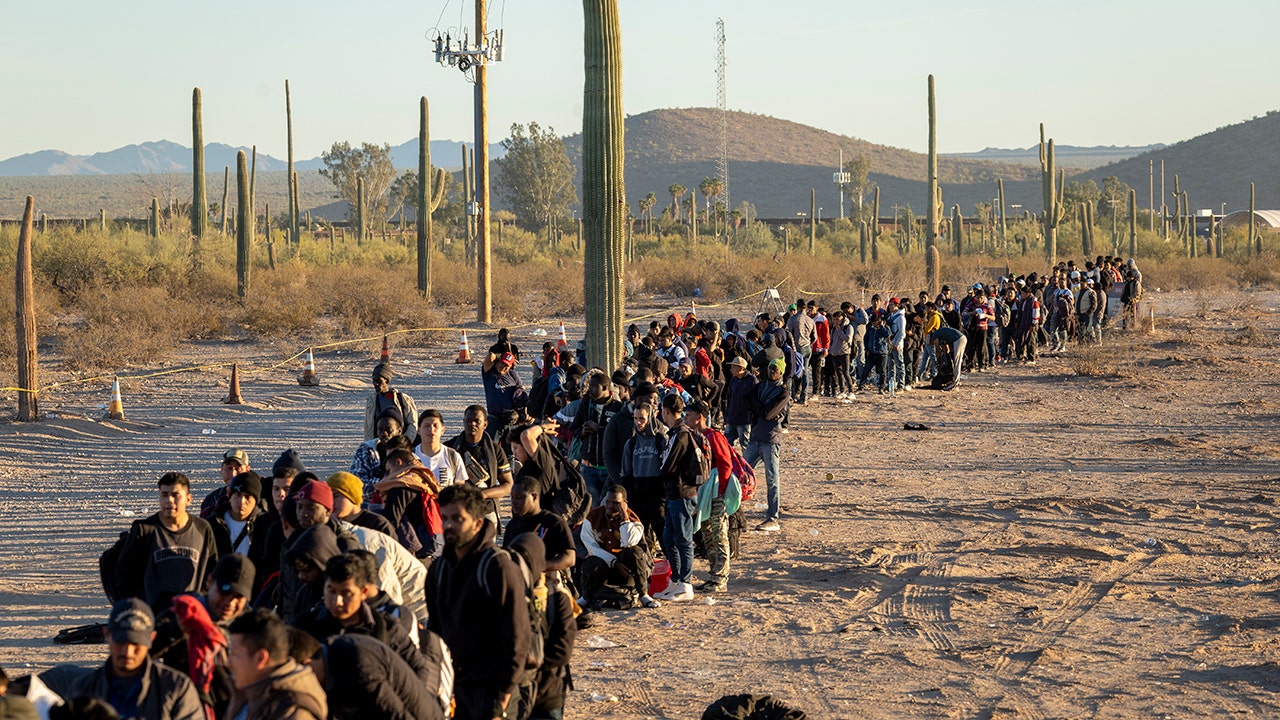
An Arizona law that requires residents to show proof of citizenship in order to be able to vote in elections is before the courts again on Tuesday after the Supreme Court allowed parts of the law to be enforced – and amid national concerns about noncitizen voting.
Arizona’s law will be before a Ninth Circuit Court of Appeals panel on Tuesday for oral arguments over the law, which was initially blocked by a lower court earlier this year. The law would require those registering to vote to provide proof of citizenship.
The Supreme Court allowed the enforcement of restrictions that block people from voting in state and local elections, but those who have registered without that proof can still vote in presidential and congressional elections with a different federal form. That form requires them to swear they are citizens under penalty of perjury.
SCOTUS GIVES PARTIAL VICTORY TO GOP TRYING TO ENFORCE PROOF OF CITIZENSHIP TO VOTE IN ARIZONA
The United States Supreme Court (front row L-R) Associate Justice Sonia Sotomayor, Associate Justice Clarence Thomas, Chief Justice of the United States John Roberts, Associate Justice Samuel Alito, and Associate Justice Elena Kagan, (back row L-R) Associate Justice Amy Coney Barrett, Associate Justice Neil Gorsuch, Associate Justice Brett Kavanaugh and Associate Justice Ketanji Brown Jackson pose for their official portrait at the East Conference Room of the Supreme Court building on Oct. 7, 2022 in Washington, D.C. (Photo by Alex Wong/Getty Images)
Justice Clarence Thomas, Justice Samuel Alito and Justice Neil Gorsuch would have granted the application in full, while Justice Sonia Sotomayor, Justice Elena Kagan, Justice Amy Coney Barrett and Justice Ketanji Brown Jackson would have denied the application in full. Chief Justice John Roberts and Justice Brett Kavanaugh provided a compromise of sorts with their deciding votes. The now-stalled 2022 state law requiring proof of citizenship was challenged by civil rights groups and the Arizona Democratic Party.
It comes amid yearslong concerns by Republicans, in particular about the potential for noncitizens voting in U.S. elections. This week, the U.S. Department of Justice said an illegal immigrant reached an agreement to plead guilty to charges related to stealing a U.S. citizen’s identity to vote in multiple elections and fraudulently obtaining an American passport.
Meanwhile, in Congress, Republicans have looked to tie a bill to require proof of citizenship before registering to vote in federal elections to a spending bill extension to avoid a government shutdown at the end of the year. The Biden-Harris administration has come out in strong opposition to the SAVE Act, making clear it would not be signed by the president if passed.
“It is already illegal for noncitizens to vote in Federal elections – it is a Federal crime punishable by prison and fines,” reads a statement of administration policy last month.
Arizona residents shared their views with Fox News Digital last month about whether voters should provide proof of citizenship to vote.
“Absolutely,” one voter in Sierra Vista, Arizona, told Fox News Digital. “I have to provide proof of ID to get on a plane to go to New York. So why wouldn’t anybody else have to have an ID to vote for the people that are going to run our country?”
ARIZONA LAW REQUIRING PROOF OF CITIZENSHIP TO VOTE SUPPORTED BY 24 STATE AGS IN EMERGENCY STAY WITH SCOTUS
“I think that’s a decent idea,” one man told Fox in Tucson.
“I think if it’s not there, and you don’t have you don’t have a way to prove it, then you shouldn’t be counted in the voting system,” a resident in Yuma said.
“Absolutely, it’s unconstitutional otherwise,” a resident in Arivaca said.
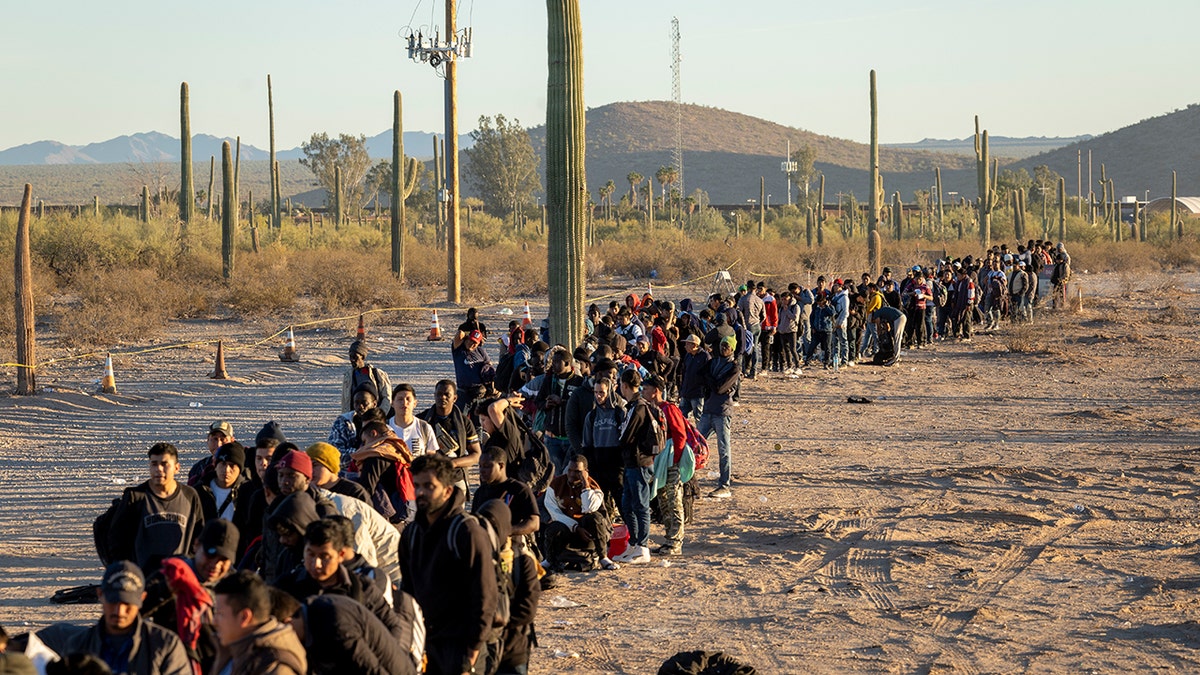
Immigrants line up at a remote U.S. Border Patrol processing center after crossing the U.S.-Mexico border on Dec. 7, 2023 in Lukeville, Arizona. (Photo by John Moore/Getty Images)
“Absolutely, yeah,” another resident in Tucson said.
However, another Tucson resident disagreed. “I don’t think so because I feel like there’s a lot of people here that don’t have papers but still care for this country and care for their environments and their lifestyles, so I feel like those people should have a right to at least vote, or have speech for their own rights too.”
Fox News’ Greg Wehner, Bill Mears, Shannon Bream, Matteo Cina, Julia Johnson and The Associated Press contributed to this report.
Read the full article from Here

Southwest
Texas lawmaker proposes bill to abolish death penalty in Lone Star State: 'I think sentiment is changing'

A Texas state lawmaker has introduced legislation to eliminate the death penalty in the state amid a high-profile death row case currently unfolding.
Democrat state Rep. John Bucy III filed the bill for the upcoming legislative session.
“I think I’ve been opposed to the death penalty my whole life as I’ve thought about its use, and should it exist in our society,” Bucy said, according to Fox 7.
“Financially, if you just want to look at it economically, we spend more money to execute than to keep someone in prison, so it’s really a lose-lose situation with a high risk stake if we get it wrong,” he continued.
TEXAS DEATH ROW INMATE’S LAWYER SAYS ‘THERE WAS NO CRIME’ AS SHE MAKES LAST-DITCH EFFORT TO SAVE HIS LIFE
Photo shows the gurney in the execution chamber at the Oklahoma State Penitentiary in McAlester, Oklahoma. (AP Photo/Sue Ogrocki, File)
This comes after the Texas Supreme Court cleared the way last week for the state to schedule a new execution date for inmate Robert Roberson, whose initial execution was delayed last month.
Roberson is currently on death row over his conviction in which prosecutors say he killed his two-year-old daughter, Nikki Curtis, by shaking her to death, known as shaken baby syndrome. But his lawyers say Nikki actually died from other health issues such as pneumonia and that new evidence proves his innocence. His lawyers also said doctors had failed to rule out these other medical explanations for the child’s symptoms.
Roberson was scheduled to be put to death on Oct. 17 before the state Supreme Court issued a stay to delay his execution shortly before it was set to take place.
If he is put to death, he would be the first person in the U.S. to be executed in a case based on shaken baby syndrome.
More than 80 Texas state lawmakers, as well as the detective who helped the prosecution, medical experts, parental rights groups, human rights groups, bestselling novelist John Grisham and other advocates have called for the state to grant Roberson clemency over the belief that he is innocent. A group of state lawmakers have also visited Roberson in prison to encourage him.
“I feel like I’ve gotten more engaged with this Robert Roberson case and wanted to make sure that we’re continuing this conversation about the lack of humanity tied to the death penalty,” Bucy said.
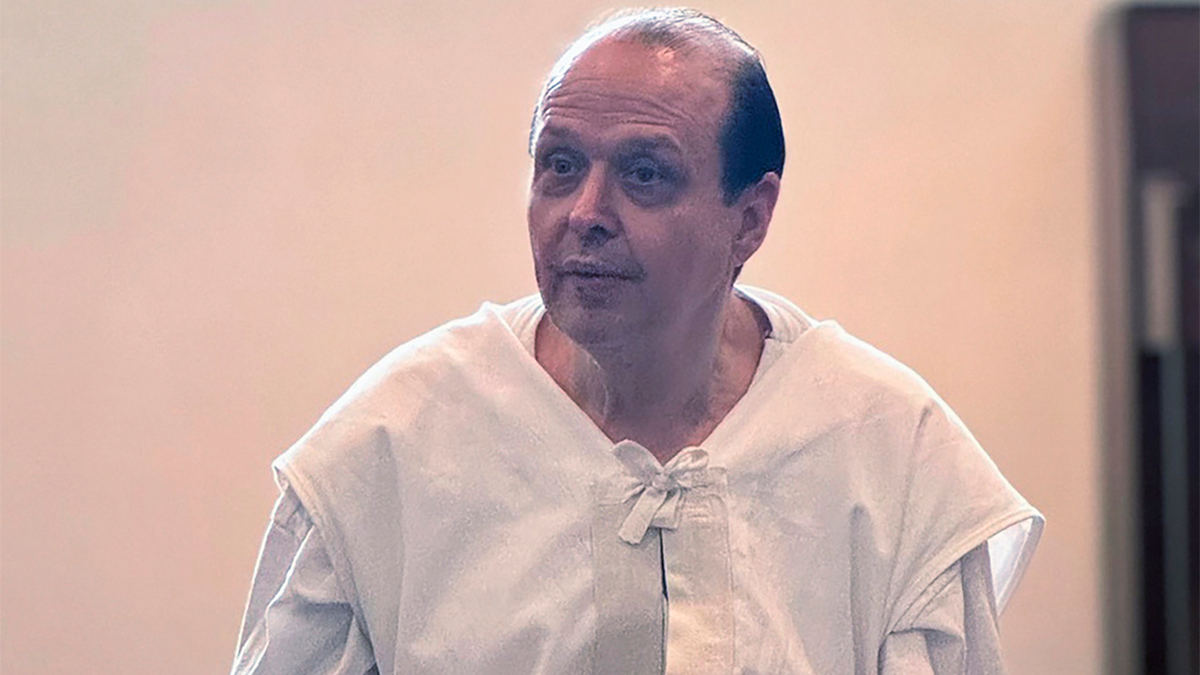
Texas lawmakers meet with Robert Roberson at a prison in Livingston, Texas, Sept. 27, 2024. (Criminal Justice Reform Caucus via AP)
Texas has executed nearly 600 people since 1982, according to Texas Coalition to Abolish The Death Penalty executive director Kristin Houle Cuellar.
“Which is far more than any other state in the nation,” Houle Cuellar told Fox 7. “We have quite a reputation when it comes to the use of the death penalty in Texas.”
Houle Cuellar said that there have been fewer death sentences in the state in the last decade, which she partially attributes to the introduction in 2005 of life without parole.
“Prosecutors have used that discretion in opting not to seek the death penalty,” Houle Cuellar said. “Even in about 30 percent of the cases that they’ve taken to trial where they’ve sought the death penalty, jurors have rejected it.”
Houle Cuellar said that Harris, Dallas, Tarrant and Bexar counties lead the state in death sentences and more than half of all Texas counties have never issued a death sentence.
Since 2007, multiple Texas lawmakers have unsuccessfully sought to abolish the death penalty. But Bucy says there is now enough momentum regarding the issue to reintroduce legislation to eliminate the practice.
TEXAS JUDGE GRANTS INJUNCTION AHEAD OF MAN’S EXECUTION IN ‘SHAKEN BABY SYNDROME’ CASE
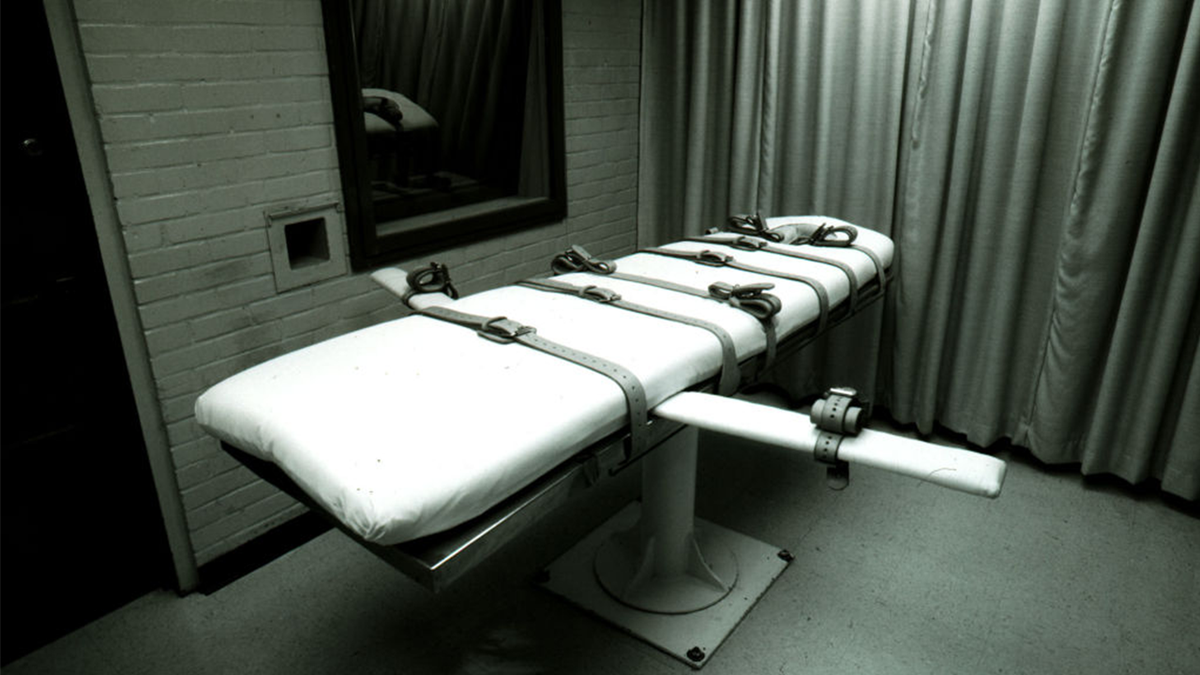
The execution bed sits empty on Death Row on April 25, 1997 at Texas Death Row in Huntsville, Texas. (Getty Images)
“While it’s an uphill battle to end the death penalty in Texas, we’ve seen the number of executions go down,” he said. “I think sentiment is changing, and I also think as we see these specific cases come to life, and we start learning the specific stories, people are going to get more and more concerned about the possibility of getting it wrong.”
State Sen. Sarah Eckhardt and state Rep. Joe Moody, both Democrats, have filed similar bills to abolish the death penalty, which will need to be voted on by fellow lawmakers when the legislative session begins early next year.
In another Texas death row case, a judge found last month that Melissa Lucio was innocent in the 2007 death of her two-year-old daughter, Mariah. Senior State District Judge Arturo Nelson recommended that Lucio’s conviction and death sentence be overturned. The judge also found that prosecutors suppressed evidence and testimony, including statements from Lucio’s other children, that could support the claim that she was not abusive and that Mariah’s death was accidental from falling down the stairs.
Read the full article from Here
Los Angeles, Ca
Fort Irwin soldier allegedly murdered comrade

A soldier from Fontana has been charged with murder in the death of another soldier at Fort Irwin in San Bernardino County.
Spc. George Cornejo, 26, is accused of killing Spc. Andrew P. Smith on Oct. 28, military officials said in a press release.
Smith, 27, was found injured in his residence that day and later succumbed to his wounds, officials said when announcing his death. The Rye, New York, native had been stationed at Fort Irwin for more than two years.
The manner and possible motivation for the alleged murder were not released.
Cornejo has been in pre-trial custody since Oct. 29, and he’s expected to be transferred to the Naval Consolidated Brig in Miramar.
A preliminary hearing will be held to determine if Cornejo will be tried by court-martial.
Southwest
Texas man convicted after saying he mutilated victims, ate human heart as part of 'ritualistic sacrifices'
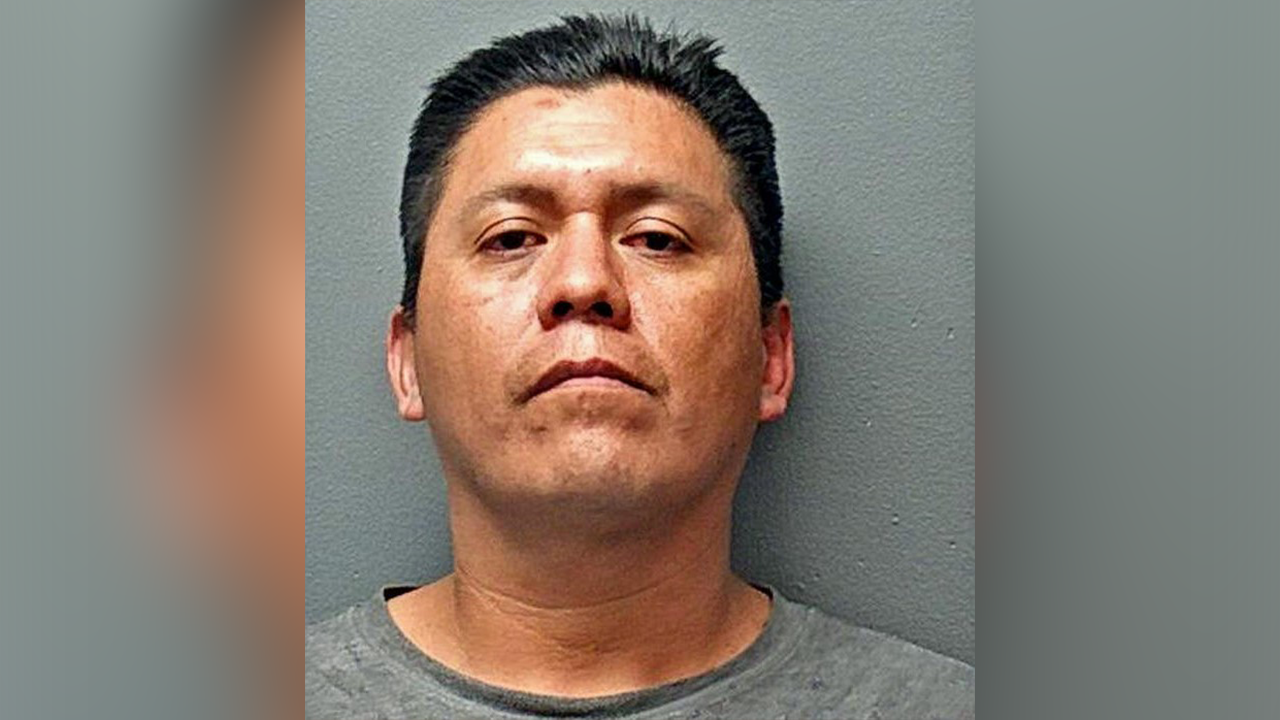
A Texas man was convicted of killing three people, dismembering them and burning their bodies after admitting to investigators that he was called to “commit sacrifices.”
Jason Thornburg was found guilty of capital murder on Wednesday and now, the same Tarrant County jury that convicted him must determine whether he receives a death sentence or if he will spend the rest of his life in prison without the possibility of parole, according to Fox 4.
In September 2021, Thornburg killed three people, dismembered their bodies and stored them under his bed at a motel in Euless, Texas, before lighting the bodies on fire inside a dumpster in Fort Worth.
TEXAS LAWMAKER PROPOSES BILL TO ABOLISH DEATH PENALTY IN LONE STAR STATE: ‘I THINK SENTIMENT IS CHANGING’
Jason Thornburg (Tarrant County Jail)
Thornburg confessed to investigators that he felt a compulsion to commit “ritualistic sacrifices” and that he ate a victim’s heart and other parts of the victims’ bodies.
His attorneys argued he was insane when he carried out the murders and suffered from a severe mental disease.
ELDERLY MAN ACCUSED OF ROOMMATE AND DOG’S ‘BRUTAL’ MURDER HAD EXTENSIVE CRIMINAL RECORD

Thornburg confessed to investigators that he was being called to “commit sacrifices” and that he ate a victim’s heart and other parts of the victims’ bodies. (iStock)
When he was arrested on murder allegations, Thornburg confessed to police he killed his roommate in May 2021 during a suspicious home explosion and his girlfriend in Arizona back in 2017.
These two previous murders were brought up in court on Thursday when the punishment aspect of the trial began.
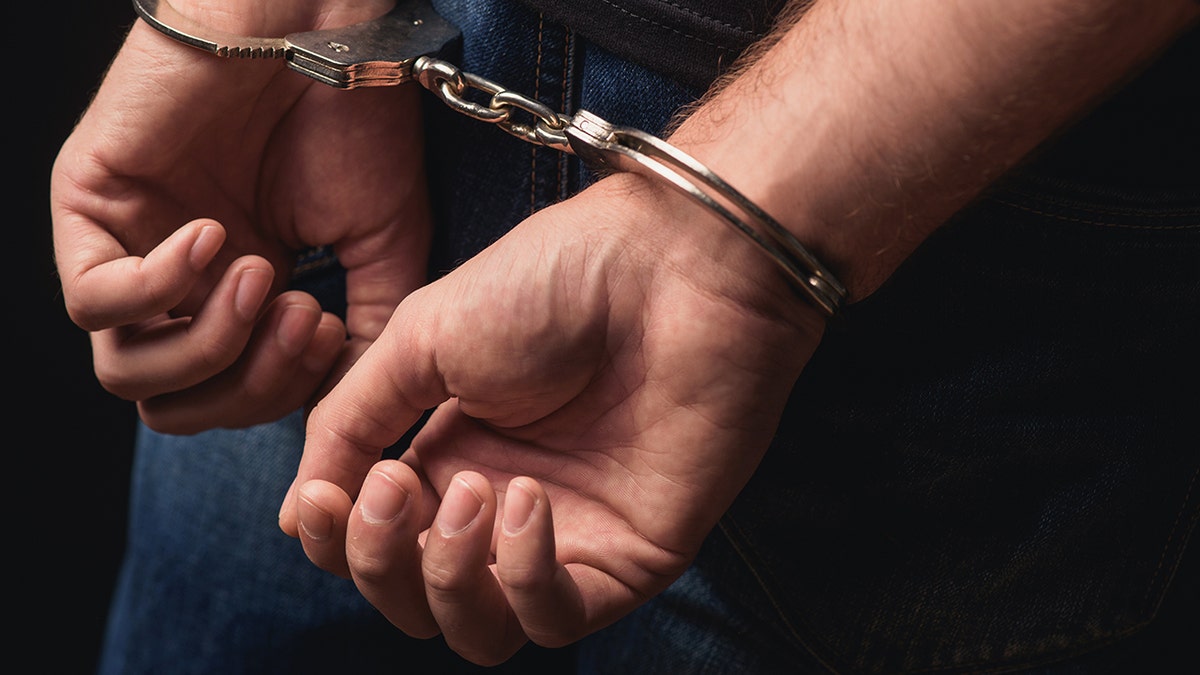
The jury must now determine whether he receives a death sentence or if he will spend the rest of his life in prison without the possibility of parole. (iStock)
The victims’ families cannot speak publicly until the punishment phase is finished.
Read the full article from Here
-

 Business1 week ago
Business1 week agoColumn: Molly White's message for journalists going freelance — be ready for the pitfalls
-

 Science6 days ago
Science6 days agoTrump nominates Dr. Oz to head Medicare and Medicaid and help take on 'illness industrial complex'
-

 Politics1 week ago
Politics1 week agoTrump taps FCC member Brendan Carr to lead agency: 'Warrior for Free Speech'
-
/cdn.vox-cdn.com/uploads/chorus_asset/file/25739950/247386_Elon_Musk_Open_AI_CVirginia.jpg)
/cdn.vox-cdn.com/uploads/chorus_asset/file/25739950/247386_Elon_Musk_Open_AI_CVirginia.jpg) Technology1 week ago
Technology1 week agoInside Elon Musk’s messy breakup with OpenAI
-

 Lifestyle1 week ago
Lifestyle1 week agoSome in the U.S. farm industry are alarmed by Trump's embrace of RFK Jr. and tariffs
-

 World1 week ago
World1 week agoProtesters in Slovakia rally against Robert Fico’s populist government
-

 Health2 days ago
Health2 days agoHoliday gatherings can lead to stress eating: Try these 5 tips to control it
-

 News1 week ago
News1 week agoThey disagree about a lot, but these singers figure out how to stay in harmony












